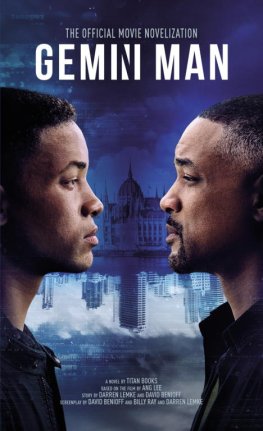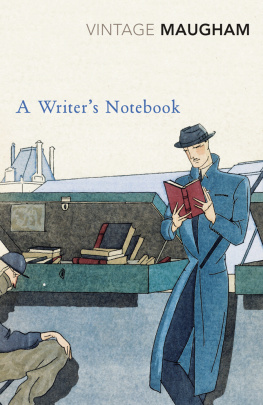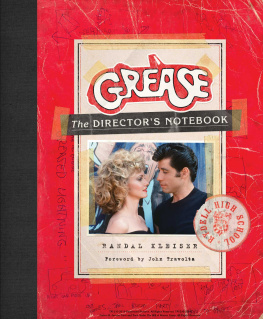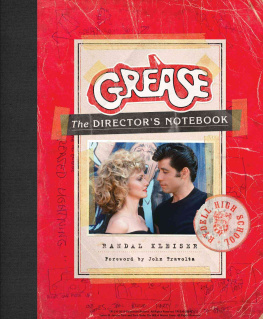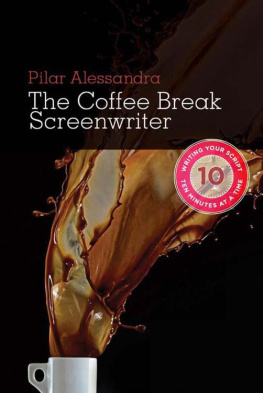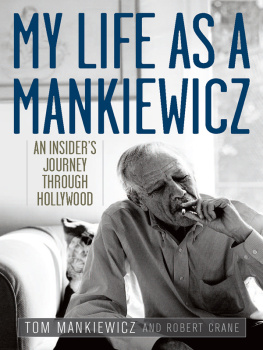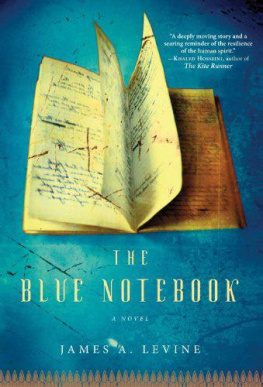Thank you for downloading this Simon & Schuster ebook.
Get a FREE ebook when you join our mailing list. Plus, get updates on new releases, deals, recommended reads, and more from Simon & Schuster. Click below to sign up and see terms and conditions.
CLICK HERE TO SIGN UP
Already a subscriber? Provide your email again so we can register this ebook and send you more of what you like to read. You will continue to receive exclusive offers in your inbox.
THE CROSSED-OUT NOTEBOOK
It all started with a screenplay.
A screenplay I should never have written.
Amadeus is a great screenplay.
I read it more than a dozen times, studied it, chewed it up and swallowed it, then I stuck my fingers down my throat.
Amadeus was a good play, then it became a great screenplay.
The screenplay far surpasses the play.
Peter Shaffer surpassed himself by turning his own good play into his own (or sort of his own) great screenplay.
While he was writing the play, Peter Shaffer could never have imagined that F. Murray Abraham would later do what he did before the cameras that filmed his screenplay; he was completely unaware that his play was going to end up a movie, and that the movie was going to win everything, and that F. Murray Abraham was going to put body and soul into the greatest exegesis ever seen of the struggle between an artist and his irrevocable mediocrity.
What name does the F in F. Murray Abraham hide?
Ferdinand?
Filomeno?
Federico?
Santiago Salvatierra says the F doesnt mean anything, that F. Murray Abrahams real name is Murray Abraham, and that Murray added the F because he thought it would sound better.
Santiago told me that F. Murray Abraham is a despicable person.
I asked him how he knew that, and he looked at me the way he looks at me when I ask him a question he doesnt want me to ask, and he left the basement and shut the door.
F. Murray Abraham is a despicable genius, hed said.
But arent we all despicable in some way or other?
Thats not the problem, no; the problem is that the majority of us are not geniuses.
The vast majority.
Peter Shaffer is a genius.
Is?
Was?
Peter Shaffer wrote his play, and then his screenplay, on a typewriter in a comfortable office with large windows and lamps of all sizes for the sunless hours.
I live in a basement.
Five years, Ive lived in this basement.
I have a lamp that illuminates little to nothing.
I write in this notebook from six in the morning to seven in the morning.
Then I spend a few minutes crossing out what Ive written, just before Santiago comes down with his chair, a cup of coffee, a dish of fruit, and printed-out scenes with his scribbled notes: margins full of comments that are usually deplorable.
This thing you are reading now (if there is a you) is nothing but crossed-out words, a text scrawled hurriedly in a Rivadavia school notebook that I brought with me from Buenos Aires.
Text in blue ink, camouflaged by neat lines of black ink that cross it out.
I am forty-five years old.
Ive been writing for twenty years.
Though during those first few years I didnt write, I tried to write.
I tried for eight, nine hours a day.
When I finished high school, I enrolled at the Buenos Aires School of Music.
I wanted to be a session musician.
Instrument of choice: guitar.
But you dont get to be a session musician when you start at nineteen.
I didnt even come close.
I fled the conservatory before I finished my second year, sick and tired of seeing and hearing those kids who were still in elementary school play their instruments as if they were natural extensions of their arms and legs and mouths.
In my hands, the guitar was an imposture.
I dont know if imposture is the right word.
It sounds good.
Every morning, after breakfastDolca instant coffee with milk and three Lincoln biscuits that I dipped in the coffee and milk until they fell apartId lock myself into my room (my tiny room that fit only a short, narrow bed, the Marshall amp Id bought in thirty-six installments, the stand with sheet music and exercises in auditory perception and musical literacy, the four-tiered Technics stereo I bought in twenty-four installments, and some books and albums scattered over the floor), Id pick up the Mexican Fender Stratocaster that Id bought in twelve installments, and my hands would need at least half an hour to figure out what that long object I was forcing them to manhandle was.
When I accepted my failure as a music student and my lack of a future as a session musician, my parents, as any parents anywhere in the world would do, asked me what I planned to do with my life:
What are your plans? We want to help you, but we need to know what you plan to do, what you want to do. We need to be sure that you know what it is you want to do.
I told them that, unfortunately, I didnt have the slightest idea.
They didnt like it when I told them that.
For twenty minutes, in silence, they concentrated on their roast beef with pureed squash; they didnt look at me; they didnt look at each other; their eyes flitted from nothing to their plates and back to nothing.
My old man worked for a millionaire who owned twenty-five percent of the worlds duty-free shops.
His job was to evaluate the employees.
He traveled once a month, mainly to cities in Latin America and Europe, where he would settle into a hotel near the airport and hed spend two days going to the various duty-free shops, jotting down details both spatial and human in a little notebook with a cream-colored cover.
He was obsessive about order and cleanliness, a fanatical believer in his own way of seeing things.
I went with him only once, to Rio de Janeiro.
He went up to one of the employees of the largest duty-free shop in the Tom Jobim International Airport, and, in perfect Portuguese, asked him why the bottles of Johnnie Walker Red were on the shelf above the bottles of Johnnie Walker Black, when clearly Johnnie Walker Red was of inferior quality to Johnnie Walker Black; and not only that, but why were the bottles of Johnnie Walker Red in their boxes while the Johnnie Walker Black bottles were not, when there was nothing impressive about the Johnnie Walker Red boxes, they didnt catch your attention in the slightest, while the Johnnie Walker Black boxes immediately seduced you with their golden contours and golden letters, and the finish on their boxes was so much glossier, so much more striking, than the Johnnie Walker Reds?
The employee stood for a long while without saying a word, staring at my father as if he were a serial killer calmly explaining how he planned to murder the employee, along with his family, and how he planned to dispose of the bodies.
Years later, on one of those flights, my old man got up to pee in the middle of the night, went into the planes little bathroom, closed the door, and, while he was peeing, rested his forehead against the curved wall. But before he finished squeezing out the last drops, the plane jolted furiously in a sudden bout of turbulence; my old mans head was still resting against the curved wall, his thoughts who knows where, and his neck snapped.
We want to help you, son, my parents said.
It was strange for them to call me son.
My parents had called me son very rarely.
They called me son one night when I was sixteen years old, at the Italian Hospital, after I got into a car wreck on Libertador with my only friend, Lisandro.
We had downed a bottle of Smirnoff vodka mixed with Sprite and Minerva lemon juice.
Next page

